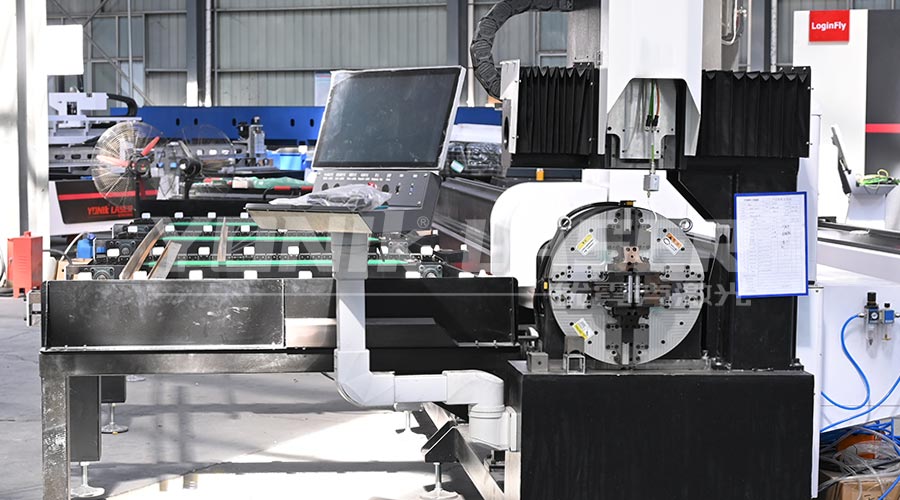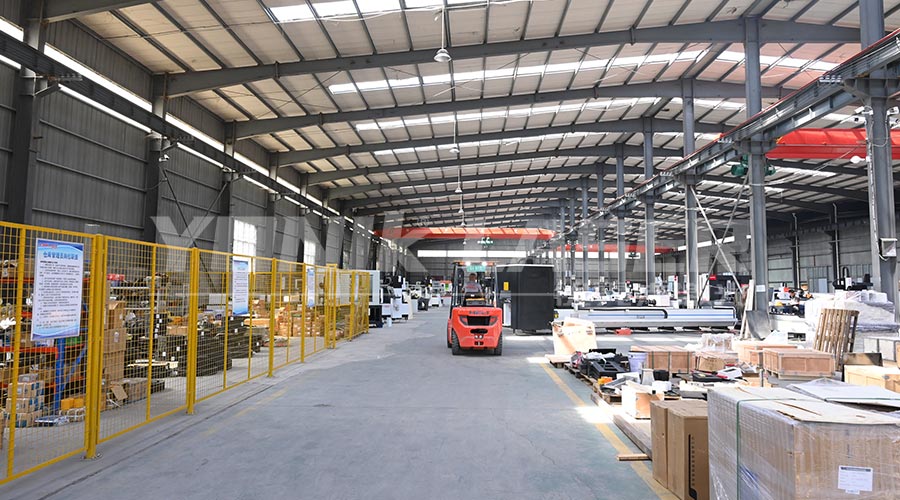The laser cutting machine chiller is the core component to ensure the stable operation of the equipment. Its function is to control the temperature of key parts such as the laser and cutting head through circulating coolant. However, many users reported that the noise of the chiller increased abnormally during operation, which not only affected the workshop environment, but also may indicate potential equipment failure. This article will start from the four major types of abnormal noise causes and provide a systematic noise reduction solution to help users quickly locate problems and optimize equipment performance.

1. Quick judgment of the source of chiller noise
The noise value of a normally operating chiller is usually 50-65 decibels (similar to the sound of indoor air conditioning operation). If the following abnormal noises occur, they must be checked immediately:
High-frequency whistling (similar to the sound of metal friction): mostly caused by bearing wear or collision of mechanical parts
Continuous vibration abnormal noise: usually accompanied by equipment resonance, and the fixed structure and pipelines need to be checked
Intermittent buzzing: may be due to compressor overload or abnormal refrigerant circulation
Water flow gurgling sound: indicates that there are cavitations or insufficient flow in the circulation system
2. Four typical causes of abnormal noise and corresponding solutions
1. Abnormal noise in the fan system
Common manifestations: "Buzzing" or "clicking" sounds when the blades rotate
Core reasons:
Dust accumulation on the cooling fan blades causes dynamic balance failure
Bearing lubricant dries up to produce metal friction
Aging of the motor winding causes electromagnetic noise
Noise reduction solution:
① Disassemble and clean the fan blades every quarter, and use compressed air to remove dust between the fins
② Replace special bearings containing silver-based grease (SKF is recommended 6200 series)
③ Upgrade the variable frequency speed control fan to control the speed in the optimal range of 1200-1800rpm
2. Abnormal noise during water pump operation
Typical symptoms: "click" impact sound or sharp whistle during operation
Root cause:
Impeller bearing deformation due to stress (common in 24-hour continuous operation equipment)
Cavitation phenomenon caused by air intake in the circulation pipeline
Aging and failure of the shock-absorbing rubber pad at the base of the water pump
Handling process:
① Use a vibration meter to detect the vibration value of the pump body. If it exceeds 4.5mm/s, the bearing assembly needs to be replaced
② Install an automatic exhaust valve in the water tank to maintain the water level 20cm higher than the water inlet
③ Install a rubber-spring composite shock absorber (shock absorption efficiency increased by more than 40%)
3. Abnormal noise of compressor
Danger signal : A sudden increase in "buzzing" sound accompanied by periodic vibration
Potential risks :
The gap between the piston and connecting rod group is too large (more than 8,000 hours of cumulative operation)
Liquid hammer caused by excessive refrigerant filling
Internal valve plate fracture leads to pressure imbalance
Professional solution :
① Use infrared thermal imager to detect the temperature difference on the surface of the compressor. If the temperature difference is greater than 15°C, the compressor needs to be shut down for maintenance
② Use a refrigerant recovery machine to refill quantitatively (R407C refrigerant error is controlled within ±5g)
③ Install a pulse damper to reduce the pressure fluctuation of the refrigerant flow
4. Structural resonance noise
Feature identification : An overall "roaring" sound occurs at a specific speed
Inducing factors :
The equipment installation foundation is uneven (horizontal deviation > 2°)
The spacing between the pipe fixing clamps is too large (recommended spacing ≤80cm)
Loosening of sheet metal shell bolts causes secondary vibration
Engineering-level transformation plan :
① Lay 10mm thick shock-absorbing floor glue on the base (NBR material is best)
② Wrap the metal pipe with polyurethane sound insulation cotton (noise reduction of 8-12dB)
③ Paste the constrained layer damping material on the inside of the shell (CLD thickness is recommended to be 2.5mm)
III. Preventive maintenance to extend the silent cycle
1. In-depth maintenance plan
Monthly: clean the water tank filter and check the sealing of the hose joint
Quarterly: test the conductivity of the coolant (need to be <20μS/cm)
Annually: replace the evaporator fins (scaling thickness >0.3mm affects the heat exchange efficiency)
2. Environmental optimization points
Keep no obstructions within 1 meter around the equipment and ensure that the air intake is >200m³/h
Control the workshop temperature in the range of 10-35℃ (auxiliary heat dissipation devices need to be installed in high temperature environments)
3. Smart monitoring upgrade
Install IoT sensors to monitor the following parameters in real time:
Noise spectrum analysis (automatic alarm for abnormal frequency bands)
Vibration acceleration (set threshold below 3.5G)
Refrigerant pressure fluctuations (normal range 0.4-0.6MPa)
IV. Emergency handling guide
When the chiller suddenly makes a violent noise, follow the steps below:

Immediately press the emergency stop button to cut off the power
Check whether the coolant circulation is interrupted (observe the flow meter reading)
Check whether the external water pipe is bent or blocked
Do not force restart the equipment before contacting a professional engineer
Through scientific fault diagnosis and systematic transformation, the operating noise of the chiller can be reduced to below 55 decibels (equivalent to the normal conversation sound level). It is recommended that users establish an "Equipment Acoustic File" to record the baseline noise value under different working conditions to facilitate rapid identification of abnormal conditions. Choosing original accessories for repair and replacement can avoid secondary noise pollution caused by component compatibility issues. Keeping the chiller in good working condition can not only improve the overall performance of the laser cutting machine, but also extend the service life of the core components by more than 30%.
2025-07-22
2025-07-21
2025-07-19